| Zeitschrift Umělec 2004/1 >> Denisa Kera talking with a member of the Re-code | Übersicht aller Ausgaben | ||||||||||||
|
|||||||||||||
Denisa Kera talking with a member of the Re-codeZeitschrift Umělec 2004/101.01.2004 Denisa Kera | info | en cs |
|||||||||||||
|
Denisa Kera: What were the reactions of people when you started this "service" and "bar code parody" on the web?
Re-code: Initially the site was making the rounds through blog sites and more personal web sites by people more familiar with satire on the internet. The initial reaction was one that appreciated the humor of the site and we received comments that were very encouraging. When we received a threatening letter from attorneys for Wal Mart, the Associated Press picked up the story. We only started getting hate mail at this point. The reactions were from individuals that were not aware of a history of cultural intervention or media disruption and saw us only as they were trained to — as thieves. DK: How did you get this idea and do you still think it is a good idea Re-code: The idea of switching stickers has been around and been performed since pre-barcodes. I got the idea myself from friends when I was a little kid. The idea for the parody site was more of a funny idea we had been joking about doing for awhile, using the collaborative properties of the internet and the annoying advertisement campaigns of companies trying to cash in on the popularity of things like the image of Che Gueverra as our impetus; we created the site in a matter of days. DK Could you tell us something about the artists and organizations involved in this project? Re-code: I work with a collective called Carbon Defense League (www.carbondefense.org). I have been working and writing as a part of that group since 1997. We work on and off very loosely and do projects that generally tamper with technology or intervene in media for some goal of subversion of cultural dissent. We have a larger network of groups that members of CDL and friends are in that are shared by a web portal called the Hactivist Tactical Media Network (www.hactivist.com) of which Tyler's group, Conglomco, is a part of. DK: What are the problems that you are facing now and your future steps? Are you still considering P2P service? Re-code: We are still considering it, but personally I am very involved with several CDL projects that are much more demanding and might suffer from the legal distractions of releasing future versions of theft enabling software. For now, the P2P app is on the backburner and has no planned release date. DK: Do you think that these bans against certain technology/solution show the weakness of different industries, that they overslept the technological innovations, or they prove the immense power these organizations have over our legal system? Re-code: I believe it shows exactly both — the bigger the monster, the slower its swing, the harder its force. These monsters are slowing down as they age and expand; they can never compete with artists, activists, and dissidents, but they can use their power to crush those that wait around too long. Wal Mart is now moving ahead to install RFID tags in merchandise this year to combat theft and barcode tampering — more restrictions is always the monster's solution. DK: Any thoughts on art and activism... Re-code: We are creating culture. We must be aware of our critical nature as deviants and make ourselves visible to attract others, then disappear underground. This is not a war, it is more like a game of scrabble — we must maintain a bigger vocabulary, the smaller and more stagnant the tactics, the more we feed the creation of the zoo that will contain all dissent. It is occurring, artists, activists, whatever — we are critical deviant practitioners.
01.01.2004
Empfohlene Artikel
|
|||||||||||||
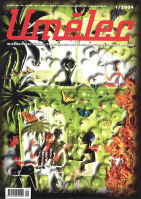
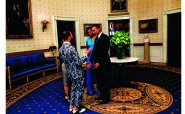
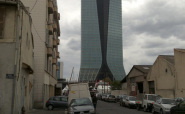
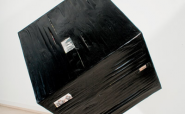
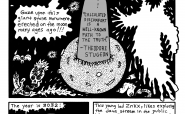
Kommentar
Der Artikel ist bisher nicht kommentiert wordenNeuen Kommentar einfügen